Tradition Restored, Respect Earned: USMNT's Latest 'Dos a Cero' Hits All the Right Notes

CINCINNATI — This may be a generation of young U.S. players the likes of which we’ve never seen. It's ambitious, fearless and committed to its manager Gregg Berhalter’s stated mission “to change the way the world views American soccer.”
But it still has an enthralling and timely appreciation for the classics.
It’s the score made famous by their predecessors, the ones who pulled the U.S. men’s national team even with and often past their arch rival and long-time tormenter, Mexico. It became a slogan, an appellation and a call to arms: “Dos a Cero.” It was the score when the Americans bested El Tri at the 2002 World Cup and when they established a long-sought home-field advantage in nearby Columbus, where they won four straight World Cup qualifiers by that exact margin.
If Friday night’s qualifier here in wet and chilly Cincinnati indeed was the last between the teams on U.S. soil, then this stretch of games that redefined U.S. soccer’s standing in the region ended on a perfectly poignant note. Christian Pulisic and Weston McKennie scored second-half goals, punctuating as dominant a performance as the U.S. has ever enjoyed against its rival. The 2–0 win lifted the Americans (4-1-2) to first place at the halfway point of Concacaf’s eight-team qualifying competition, which will send the top three finishers to next year’s World Cup in Qatar and the fourth-place side to an intercontinental playoff.
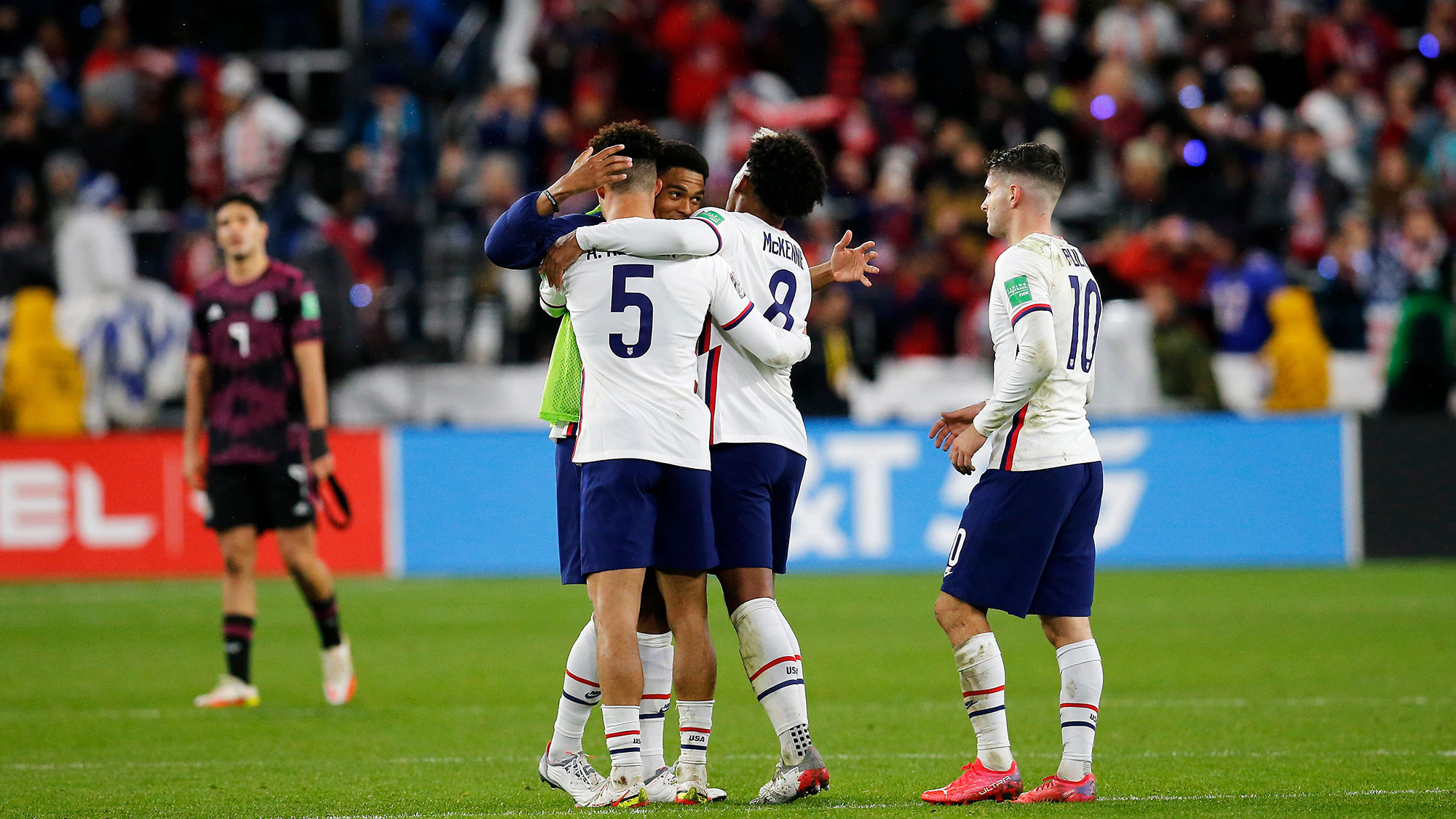
The U.S., which visits Jamaica (1-3-3) next Tuesday, is now ahead of second-place Mexico on goal differential. But the gap suddenly seems bigger than that. After losing his first two matchups against El Tri, Berhalter has engineered an unprecedented three straight competitive wins in just five months—the Concacaf Gold Cup and Nations League finals during the summer and then Friday’s signature triumph.
Before making their case to the world, the Americans had to re-establish themselves locally. The failure to advance to the 2018 World Cup loomed large over this revitalized program as the new quadrennial cycle commenced. But this player pool clearly is made of different stuff. It’s exceptionally young for a contending national team—this month’s squad averages under 24 years of age—but its aspirations and confidence are evident. Many members play for high-profile clubs. Others are on their way. And they approached Friday’s game with no fear, pressing and harassing and going at Mexico until the visitors eventually and inevitably buckled.
“When I think about our age and the youth we have in this generation coming up and having to compete against Mexico, that’s an experienced team. And these guys just keep going and they’re relentless,” said Berhalter, a member of that U.S. team that bested El Tri in ’02. “It’s the mentality of the group to be very aggressive. We wanted to put Mexico on their heels. We know they’re a good team, a well-coached team, and for us it was about, ‘How we can we disrupt them?’ And I think we didn’t want to show that sign of weakness by dropping off. We wanted to be aggressive and continue to press.”
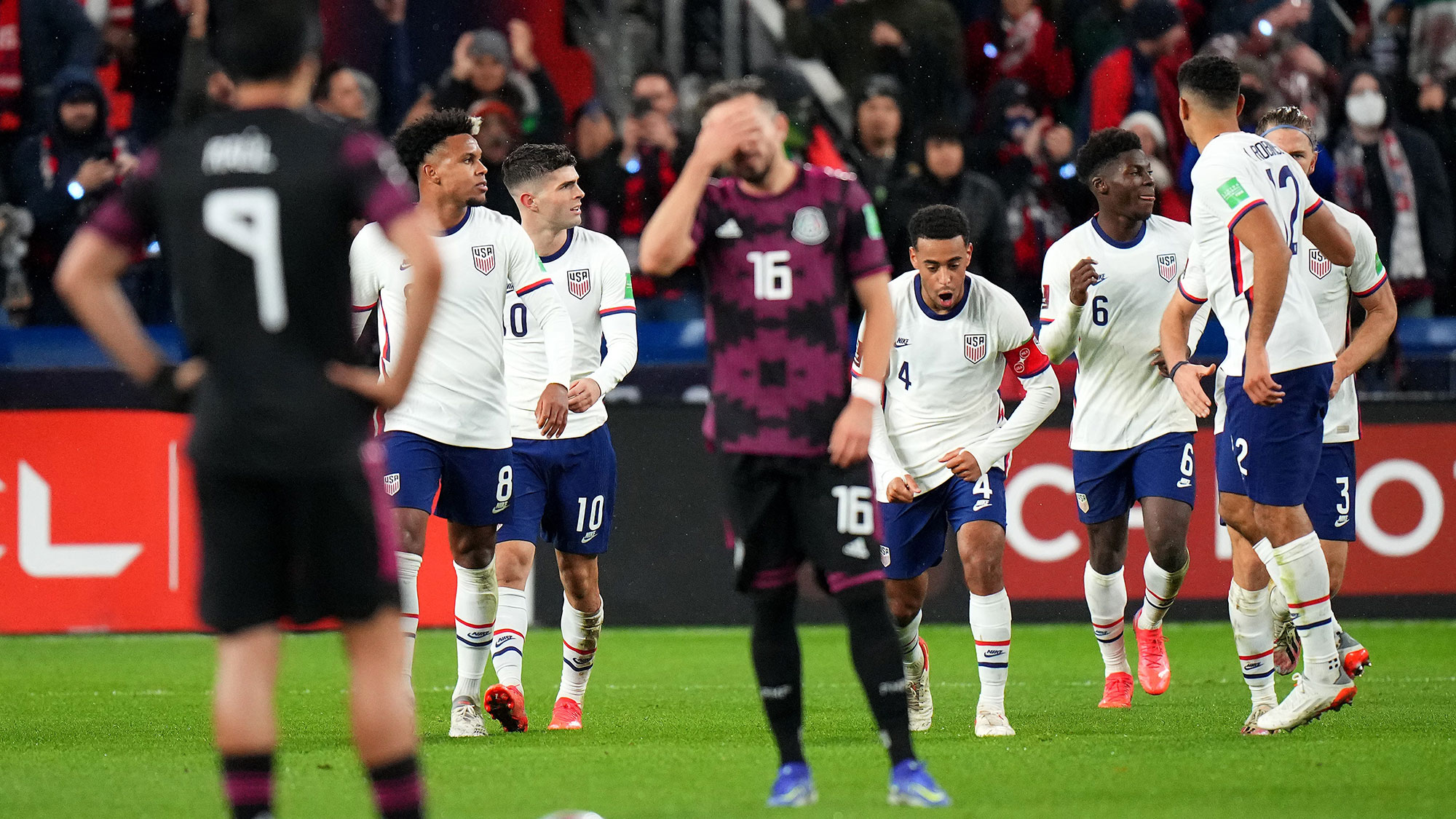
If it looked like the hosts played with a bit of a chip on their collective shoulder, it’s because they probably did. Each and every qualifier is worth just three points, and the three points earned Friday are no more vital than the ones at stake in Kingston next week. But anyone who’s ever competed understands the nature of rivalry, and how that friction and antipathy can jumpstart emotions, highlight perceived sleights and heighten sensitivity. It’s not enough to beat El Tri. It has to sting.
This week, veteran Mexico goalkeeper Guillermo Ochoa expressed an interesting take on the cross-border clásico. Those two wins over the summer and that winning overall record over the past three decades didn’t change the overall pecking order, he suggested, because the U.S. still defines itself by its relationship to Mexico.
“Mexico has been that mirror in which they want to see themselves and reflect—what they want to copy,” Ochoa told reporters.
Berhalter bristled during his pre-game press conference on Friday, saying that his players apparently still “have a long way to go to get the respect of Mexico.” That was the cue. At some point between then and Friday’s kickoff. U.S. Soccer staffers put Michael Jackson’s “Man in the Mirror” on the stadium playlist. And Pulisic, separately and coincidentally, had the same phrase written on a white undershirt.
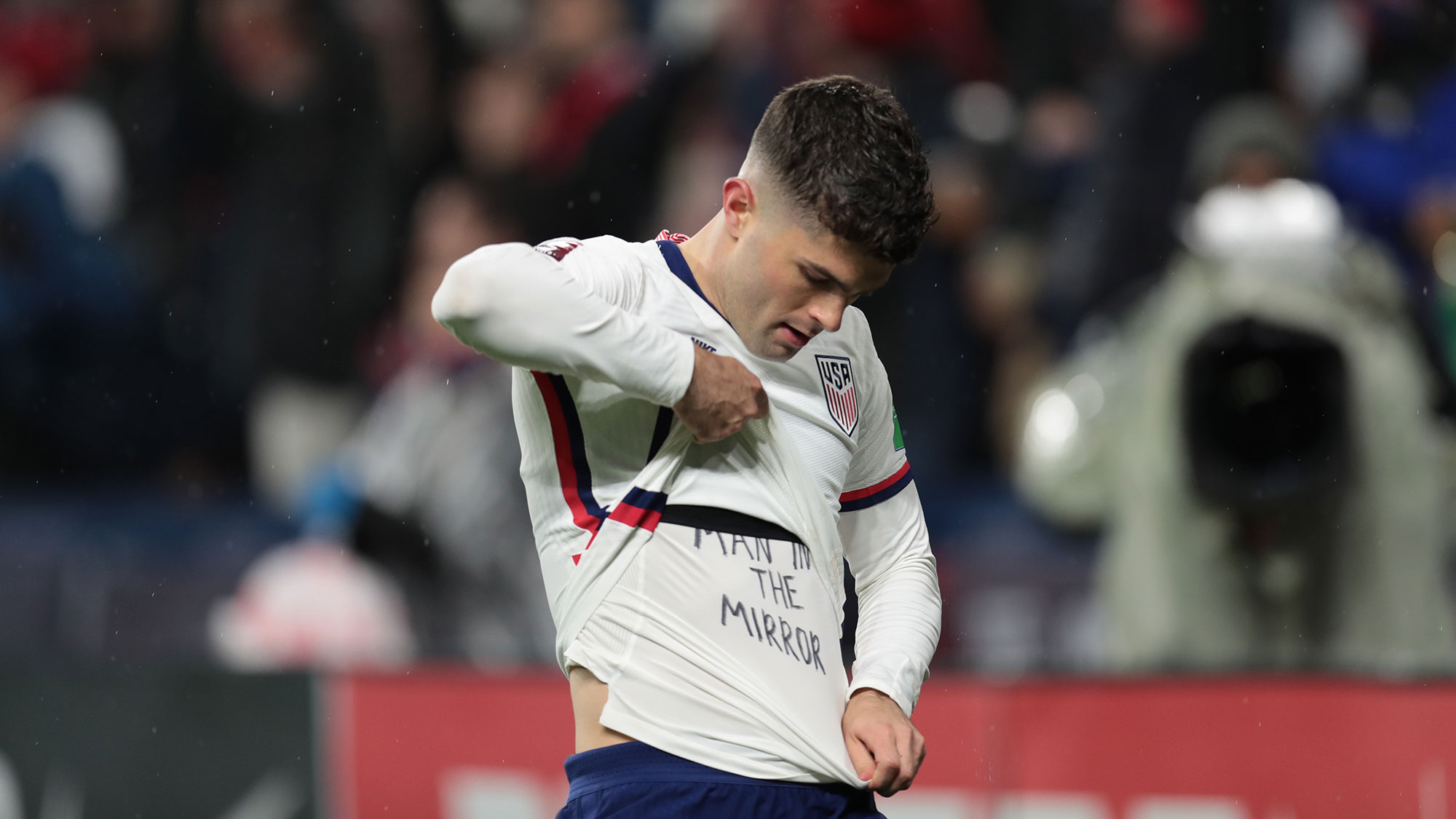
When Pulisic scored the game’s opening goal on a quick near-post run and sharp, short-range, 75th-minute header, he lifted his U.S. jersey and showed off the undershirt to the fans sitting behind TQL Stadium’s south goal. And after the final whistle sounded about 15 minutes later—McKennie had tallied the symbolic second goal in the 85th—the arena’s PA system played Jackson’s hit.
Pulisic, who began the game on the bench as he continues his recovery from a high ankle sprain suffered in September, later downplayed the display.
“I think you guys know the message. I don’t need to speak on it too much,” he said. “It’s not a big thing. I’m not trying to cause controversy. It was just an idea that came in my head. I actually wrote it in a mirror—no I’m kidding.”
Berhalter was more pointed.
“We talked about how we thought they didn’t give us enough respect, and we had to go out and earn it. And I think we went out and earned it today,” he said.
The performance was emphatic, and this game’s entry into the “Dos a Cero” pantheon was well deserved. The Americans’ front-foot approach helped produce an entertaining first half, during which the U.S. had more of the play but Mexico the better chances. The host’s energetic press and high back line offered some room for Mexico’s dangerous duo of Hirving Lozano and Jesús Corona, and U.S. goalkeeper Zack Steffen made two excellent saves before intermission.
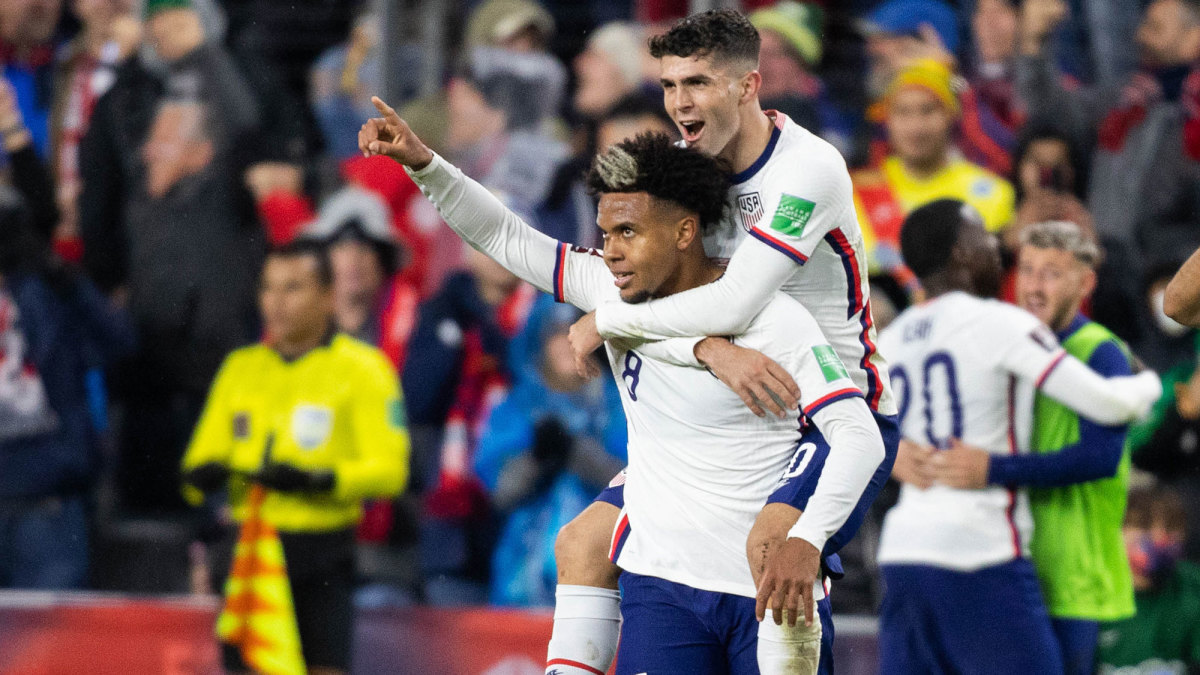
That set the stage for a second half that may have been the most impressive 45 minutes ever played by an American squad against Mexico. Pulisic’s header was the end result of a series of runs by right wing Tim Weah, midfielder Yunus Musah and others that left Mexico frequently ragged and on the back foot. Lozano and Corona faltered and star striker Raúl Jiménez was pretty much erased. McKennie and Ricardo Pepi nearly put the U.S. ahead before Pulisic entered, but perhaps their misses were football fate. A pulsating crowd was eager for Pulisic’s return, and his undershirt was useless without the scorer’s spotlight.
“I’m happy I could come on and make a difference. The timing seemed, well, I mean you can’t argue with the timing. It was perfect,” said Pulisic, who converted Weah’s cross five minutes after replacing Brenden Aaronson. “Got the goal and that really sparked the team. In the second half we had some periods in the game where I think we were really strong. It was our game to lose, it felt like. We played really well today.”
The are challenges to come. The three points earned here, as exhilarating as they were, don’t clinch passage to Qatar. The Americans travel to Kingston on Sunday and will have to regroup quickly. And they’ll be doing so without two vital players—both McKennie (yellow card accumulation) and center back Miles Robinson (a late red card against Mexico) will be suspended for Tuesday’s tilt with the Reggae Boyz.
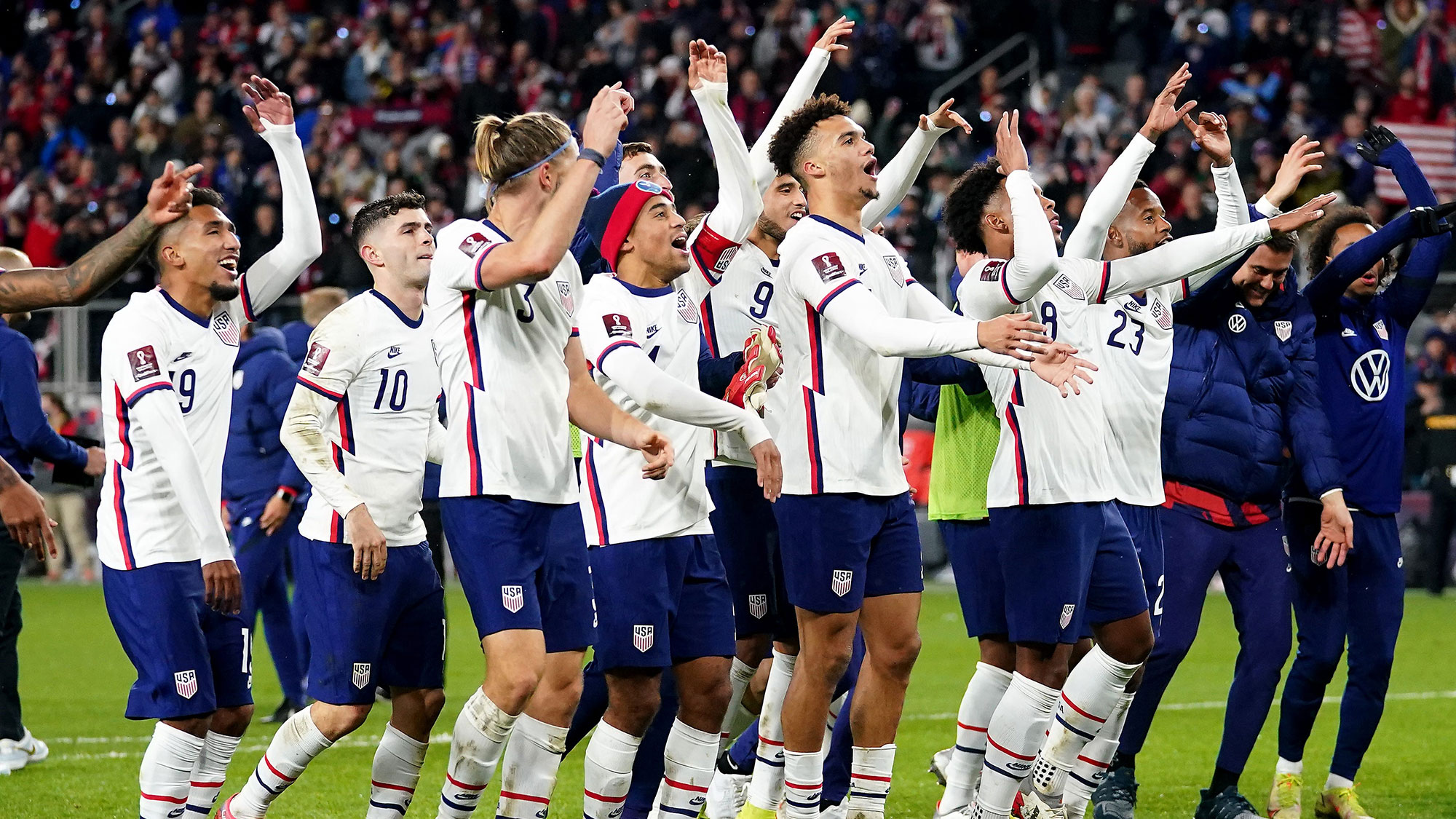
“For us, it’s about how quickly can we get over this win,” Berhalter said. “Get back down to ground and get focused on what the next task is. Same thing when we lose a game, it’s about, ‘How we do we refocus and get that energy out?’ So for this, we want to turn around and have a strong performance in Jamaica.”
That’s the task at hand—forget a game that’ll be remembered forever. The U.S. and Mexico will co-host the 2026 World Cup, and subsequent 48-team editions then will force a revision in the qualifying process that’ll almost certainly keep the rivals apart. Mexico will get its return Octagonal shot at the Estadio Azteca next March. El Tri will be favored, because home-field advantage matters. For decades, the U.S. didn’t have one. But now it does, and the visitors were crushed by it in Cincinnati. The Americans played vigorous, proactive and winning soccer, just like a seasoned home team should.
“We’ve come a long way in the last couple years,” Pulisic said. “Mexico has always been a tough opponent for us and yeah, to now win three in a row is obviously amazing. But that doesn’t mean it’s time to be complacent and time to think, ‘Oh, we’re the best around.’ Now it’s Jamaica. Focus on Jamaica.
“It’s just about keep going really, and we want to continue to prove what this team is about, and hopefully start to show the world what this national team is capable of.”
More Soccer Coverage:
